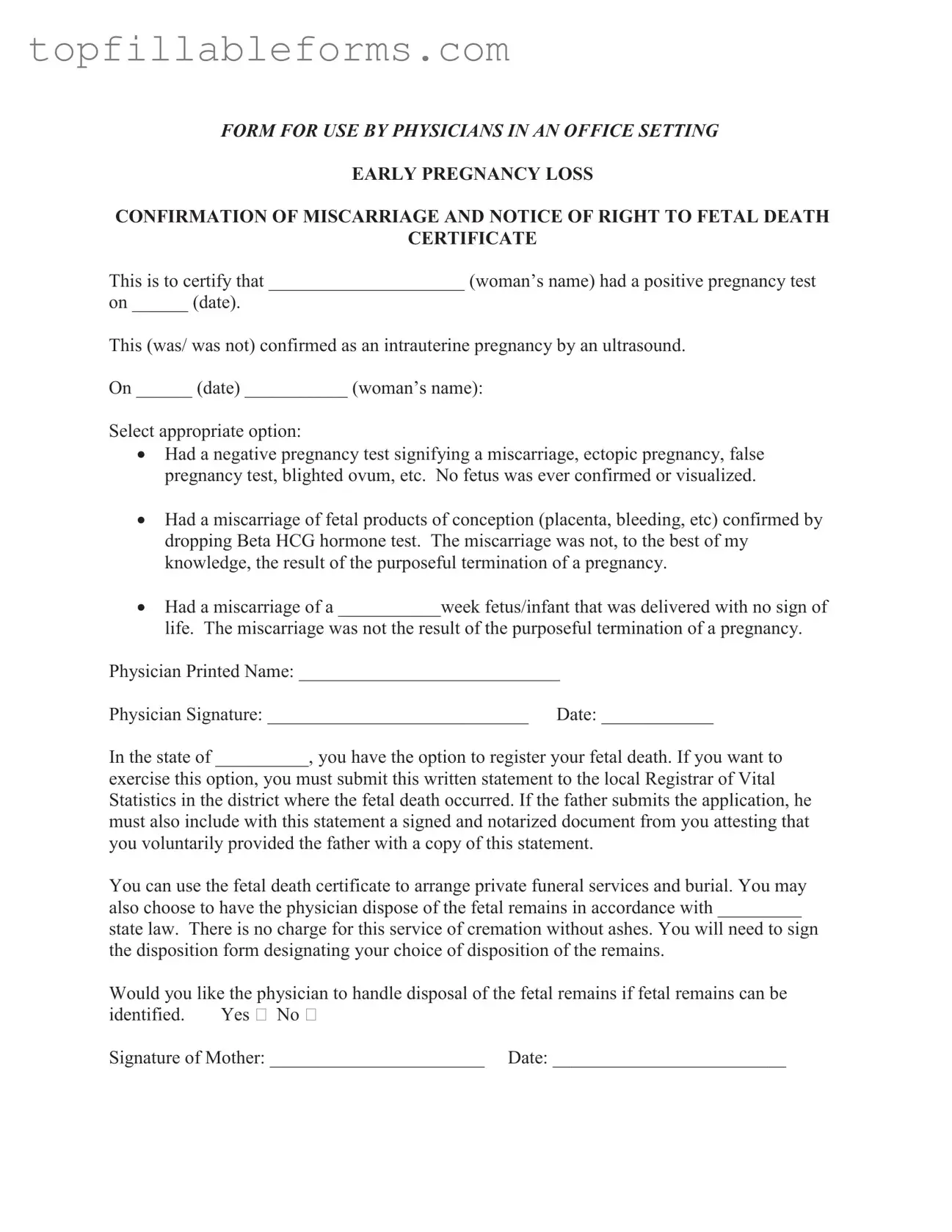Printable Miscarriage Discharge Paper Form in PDF
The Miscarriage Discharge Paper form is an important document used by physicians to confirm early pregnancy loss and inform families of their rights regarding fetal death certificates. This form provides essential information about the pregnancy, the circumstances of the miscarriage, and options for the disposition of fetal remains. Understanding this form can help families navigate a difficult time with clarity and support.
Open Miscarriage Discharge Paper Editor Here

Printable Miscarriage Discharge Paper Form in PDF
Open Miscarriage Discharge Paper Editor Here
Finish the form now and be done
Finish your Miscarriage Discharge Paper online by editing, saving, and downloading fast.
Open Miscarriage Discharge Paper Editor Here
or
▼ PDF File
